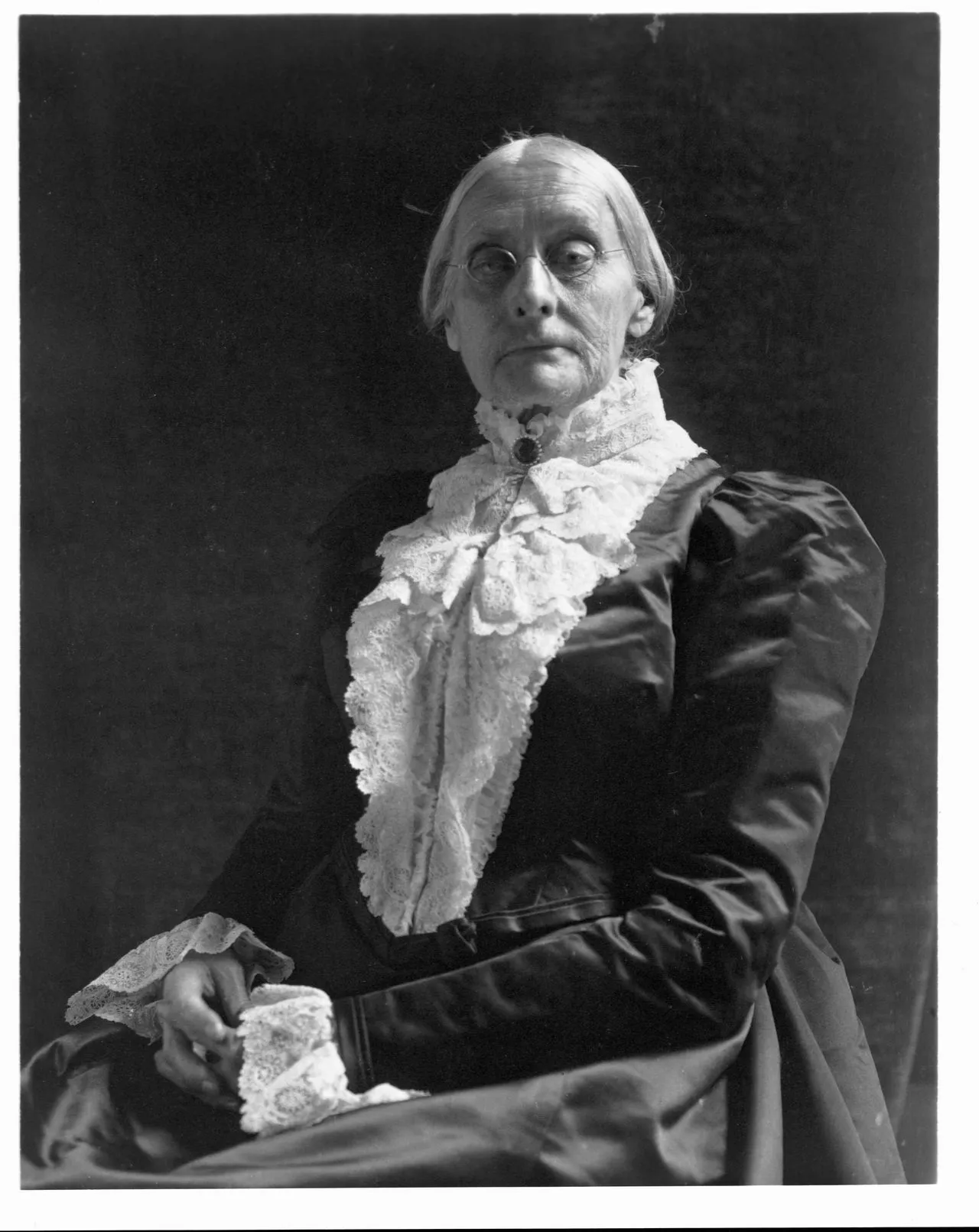Rediscovering Susan B. Anthony: The Icon Who Fought for Women’s Rights and Changed History
Susan B. Anthony, a name synonymous with the fight for women’s rights, was born on February 15, 1820, in Adams, Massachusetts. Growing up in a Quaker family that valued social equality, Anthony’s early life laid the groundwork for her lifelong commitment to social reform. Her journey from a young girl collecting anti-slavery petitions to a pivotal figure in the suffrage movement is a testament to her unwavering dedication to achieving women’s equality.
At the tender age of 17, Anthony began her activism by collecting anti-slavery petitions. This early involvement marked the beginning of her lifelong dedication to social justice. She quickly became a prominent figure in the abolitionist movement, working alongside notable activists like Frederick Douglass. Their collaboration not only highlighted the injustices of slavery but also set the stage for Anthony’s future endeavors in advocating for women’s rights.
In 1851, a significant turning point in Anthony’s life occurred when she met Elizabeth Cady Stanton. Together, they founded the Women’s New York State Temperance Society, which later evolved into the National American Woman Suffrage Association. This partnership was pivotal in advancing women’s rights, as they organized campaigns, rallies, and educational efforts to raise awareness about the need for women’s suffrage. Their combined efforts laid the foundation for the organized movement that would eventually lead to the passage of the Nineteenth Amendment.
One of the most notable events in Anthony’s life occurred in 1872 when she was arrested for voting illegally in the presidential election. This act of civil disobedience was a bold statement against the systemic denial of women’s voting rights. Charged with a $100 fine, Anthony famously refused to pay, using her trial as a platform to highlight the injustice of denying women the right to vote. Her courageous stand brought national attention to the suffrage movement and inspired countless others to join the cause.
In addition to advocating for voting rights, Anthony was a staunch supporter of women’s property rights. She campaigned tirelessly for legislation that would allow women to own property and retain their earnings, emphasizing that financial independence was crucial for true freedom. Her efforts in this area were instrumental in changing societal perceptions about women’s roles and rights.
Throughout her life, Anthony co-founded several key organizations aimed at promoting women’s rights. In 1866, she helped establish the American Equal Rights Association, and in 1869, she co-founded the National Women’s Suffrage Association. These organizations played a crucial role in mobilizing support for women’s suffrage and advocating for legislative changes that would benefit women across the nation.
Anthony’s influence extended beyond voting rights; she also made significant strides in education. In 1900, she successfully advocated for the University of Rochester to admit women, showcasing her commitment to educational equality. This achievement not only opened doors for women in higher education but also reinforced the idea that women deserved equal opportunities in all aspects of life.
The culmination of Anthony’s efforts came with the drafting of the first version of what would become the Nineteenth Amendment, granting women the right to vote. Although the amendment was ratified in 1920, fourteen years after her death, Anthony’s contributions to the suffrage movement were undeniable. Her tireless advocacy and commitment to women’s rights laid the groundwork for future generations of activists.
Throughout her life, Anthony traveled extensively, delivering up to 100 speeches per year to advocate for women’s suffrage and other social issues. Her eloquence and passion inspired many to join the fight for equality. As she once stated, “Men, their rights, and nothing more; women, their rights, and nothing less.” This powerful declaration encapsulated her belief in the necessity of equal rights for all.
Anthony’s legacy continues to resonate today. In 1979, she became the first woman to be depicted on U.S. currency with the Susan B. Anthony dollar coin, symbolizing her lasting impact on American history. Her work not only advanced the cause of women’s suffrage but also laid the foundational principles for gender equality movements that followed.
In her final years, Anthony remained committed to her activism until her death on March 13, 1906. She expressed a sense of urgency about achieving women’s rights, reflecting her deep-seated belief that equality was not just a goal but a necessity. Her life and work serve as a reminder of the struggles faced by women and the importance of continuing the fight for equality.
In conclusion, Susan B. Anthony’s contributions to the suffrage movement and her unwavering commitment to women’s rights have left an indelible mark on history. Her legacy is a powerful reminder of the importance of advocacy, courage, and the relentless pursuit of equality. As we reflect on her life, it is essential to recognize the ongoing struggle for women’s rights and the need to honor her memory by continuing the fight for women’s equality in all aspects of society.






Leave a Comment